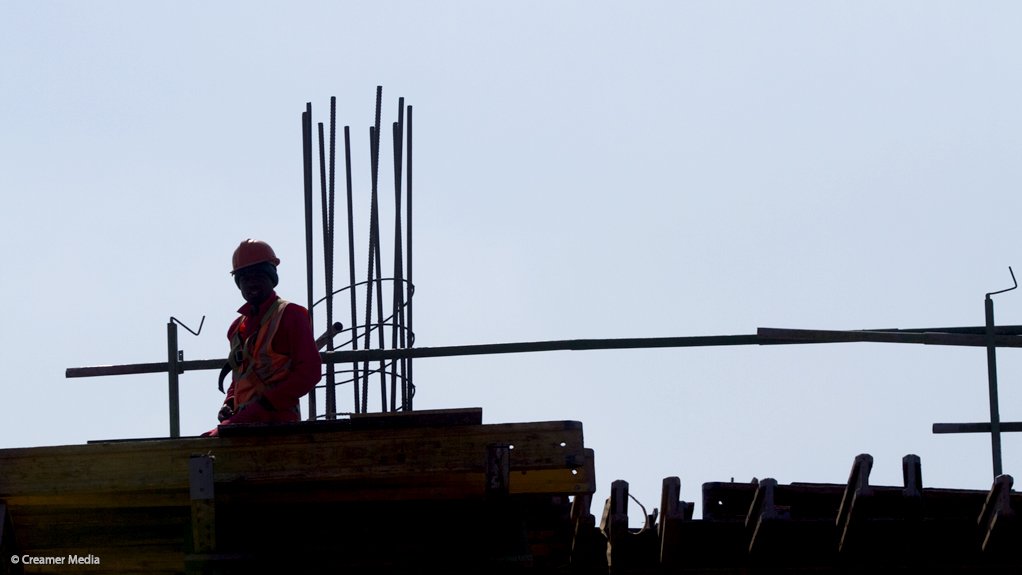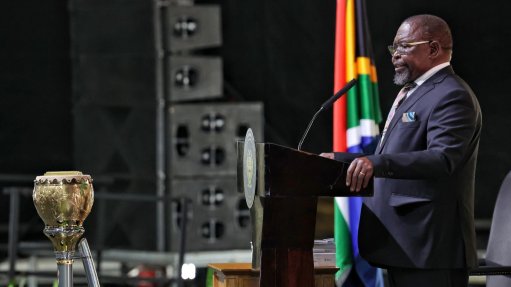Big business to approach government with solutions for accelerating infrastructure spending
Big business in South Africa plans to approach government with a series of solutions aimed at narrowing the ever-widening gap between the country’s fixed-investment spending targets and the dismal reality of declining spending on both social and economic infrastructure.
Through the National Development Plan, South Africa has set an official goal of increasing gross fixed capital formation to 30% of gross domestic product (GDP) with the aim of using such spending to create the platform for economic growth and improved service delivery.
However, research commissioned by Business Leadership South Africa (BLSA) and executed by Intellidex confirms that even prior to the disruption caused by the Covid-19 pandemic, gross fixed capital formation in South Africa had fallen to 18% of GDP.
The decline has been driven primarily by an ongoing contraction in public sector and State-owned enterprise (SOE) investment, which fell from 7.3% of GDP in 2015 to 5.4% in 2019.
Private sector investment has been less volatile, averaging 12.7% of GDP over the past five years. Private investment has been constrained, however, owing to a combination of weak economic growth, low business confidence, regulatory constraints and policy uncertainty.
Presenting the 58-page ‘Infrastructure for South Africa’ report’s findings during a virtual briefing on March 26, Intellidex’s Dr Stuart Theobald said that reaching the 30% goal would require daily infrastructure spending to rise to R4.1-billion, from its current level of about R2.5-billion.
Achieving such an acceleration would require material increases in infrastructure investment across all four of the available delivery mechanisms, including:
- on-Budget investment by all three spheres of government that was primarily geared toward social infrastructure such as schools, hospitals and local roads;
- a recovery in SOE spending on economic infrastructure such as ports, power stations, national roads and railways;
- higher levels of private investment on machinery, mining, as well as information and communication technology (ICT); and
- an increase in the use of public-private partnerships (PPPs) to deliver infrastructure such as toll roads, prisons and to increase electricity generation by independent power producers.
Theobald argued that increasing on-Budget infrastructure spending would depend as much on addressing skills deficits at municipal and provincial departments as it would on ensuring the proposed rotation of fiscal resources away from consumption and towards investment.
Building capacity was also crucial as the decrease in technical and financial skills in the public sector had been accompanied by a rise in the complexity of public procurement processes; an increase that was commensurate with growing pressure for improved procurement controls to address waste and corruption.
The report quotes research conducted in 2015, which found that the number of professionally registered engineering staff at municipalities had fallen to 294 from 455 in the preceding decade, while the average age of the remaining engineers had fallen from 46 to 38. Other research indicated that only 30% of registered engineers currently worked in the public sector from a peak of 70% previously.
Theobald said that, although the only sustainable solution lay in rebuilding public sector capacity, the private sector could offer immediate support by injecting technical skills to help improve project planning and delivery.
Infrastructure investment linked to the country’s SOEs could be bolstered through efforts to “crowd in private balance sheets through PPPs”, while policy certainty in mining and regulatory reform in ICT and energy could help trigger much-needed private sector investment.
Government’s newly established Infrastructure Fund, as well as the identification of Strategic Infrastructure Projects would help “at the margin” to catalyse high-impact projects and create the political will needed to drive PPPs.
However, achieving the scale-up envisaged in the NDP would require a shift from “micro to macro”, whereby the climate for infrastructure investment by both the public and private sectors was made more conducive through streamlined procurement processes, regulatory reforms and the removal of red tape.
BLSA CEO Busisiwe Mavuso said that business, like government, was convinced that infrastructure investment should be central to South Africa’s economic recovery.
The organisation, which is made up of the largest domestic and multinational businesses operating in South Africa, had, therefore, commissioned the report so that it could have an evidence-based discussion with government on what it saw as the binding constraints to higher levels of investment, as well as what the possible remedies were for unlocking spending.
She said meetings would now be held with The Presidency, the Department of Public Works and Infrastructure as well as with the Development Bank of Southern Africa during which BLSA would emphasise the willingness of the private sector to play its part in unlocking far higher levels of infrastructure investment.
It would also reinforce its argument that not enough was yet being done to exploit the PPP model and to ease the regulatory constraints hindering higher levels of private investment in economic and social infrastructure.
Article Enquiry
Email Article
Save Article
Feedback
To advertise email advertising@creamermedia.co.za or click here
Press Office
Announcements
What's On
Subscribe to improve your user experience...
Option 1 (equivalent of R125 a month):
Receive a weekly copy of Creamer Media's Engineering News & Mining Weekly magazine
(print copy for those in South Africa and e-magazine for those outside of South Africa)
Receive daily email newsletters
Access to full search results
Access archive of magazine back copies
Access to Projects in Progress
Access to ONE Research Report of your choice in PDF format
Option 2 (equivalent of R375 a month):
All benefits from Option 1
PLUS
Access to Creamer Media's Research Channel Africa for ALL Research Reports, in PDF format, on various industrial and mining sectors
including Electricity; Water; Energy Transition; Hydrogen; Roads, Rail and Ports; Coal; Gold; Platinum; Battery Metals; etc.
Already a subscriber?
Forgotten your password?
Receive weekly copy of Creamer Media's Engineering News & Mining Weekly magazine (print copy for those in South Africa and e-magazine for those outside of South Africa)
➕
Recieve daily email newsletters
➕
Access to full search results
➕
Access archive of magazine back copies
➕
Access to Projects in Progress
➕
Access to ONE Research Report of your choice in PDF format
RESEARCH CHANNEL AFRICA
R4500 (equivalent of R375 a month)
SUBSCRIBEAll benefits from Option 1
➕
Access to Creamer Media's Research Channel Africa for ALL Research Reports on various industrial and mining sectors, in PDF format, including on:
Electricity
➕
Water
➕
Energy Transition
➕
Hydrogen
➕
Roads, Rail and Ports
➕
Coal
➕
Gold
➕
Platinum
➕
Battery Metals
➕
etc.
Receive all benefits from Option 1 or Option 2 delivered to numerous people at your company
➕
Multiple User names and Passwords for simultaneous log-ins
➕
Intranet integration access to all in your organisation



















